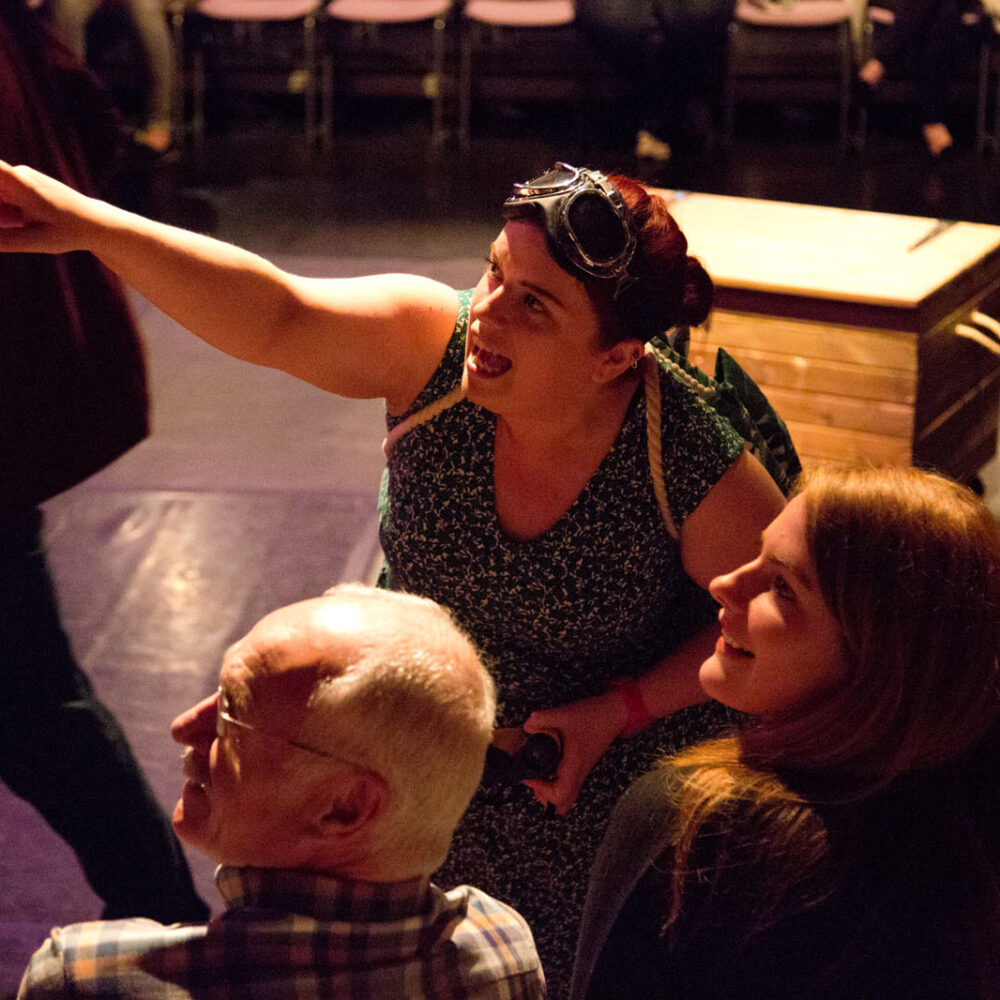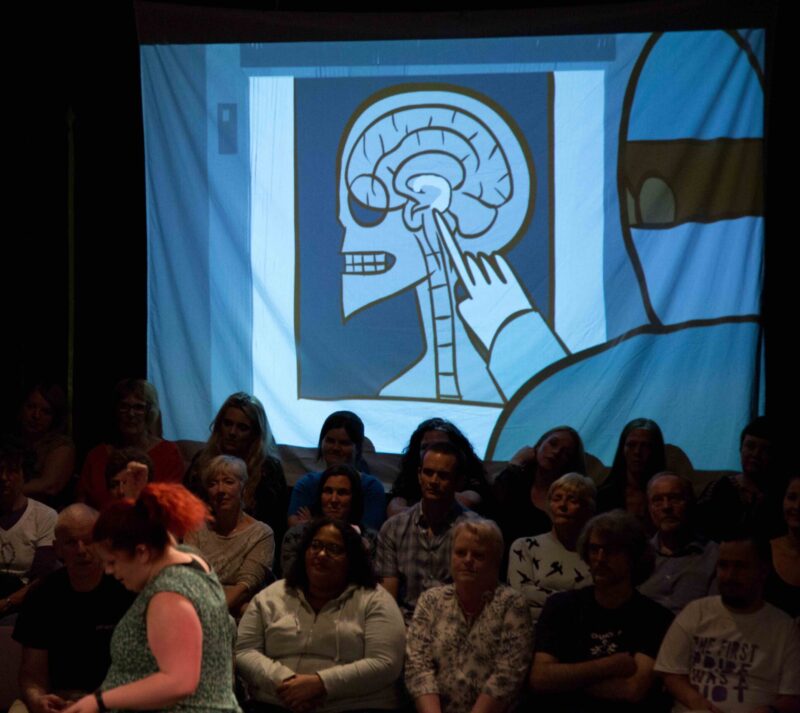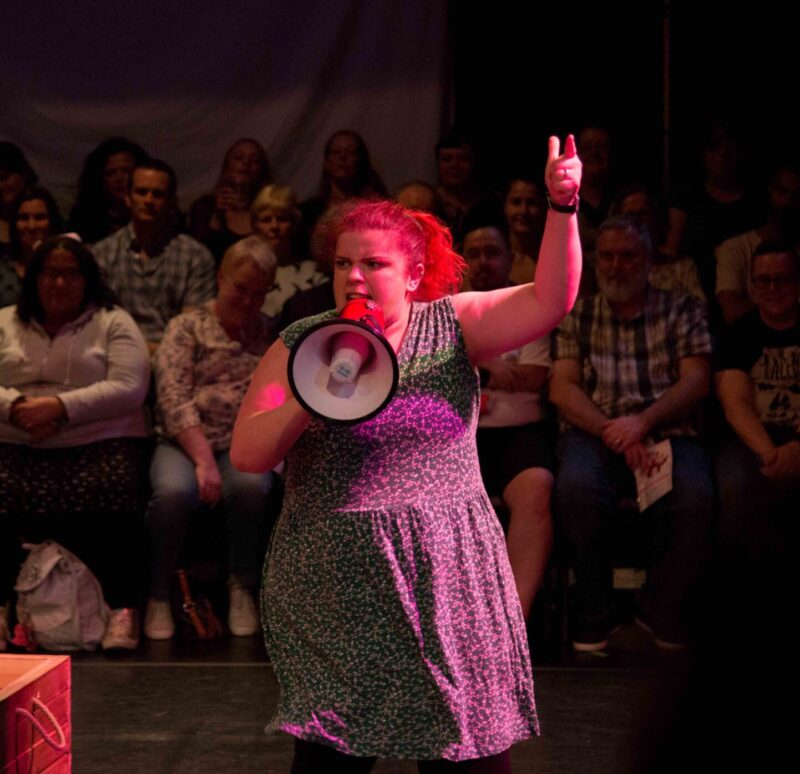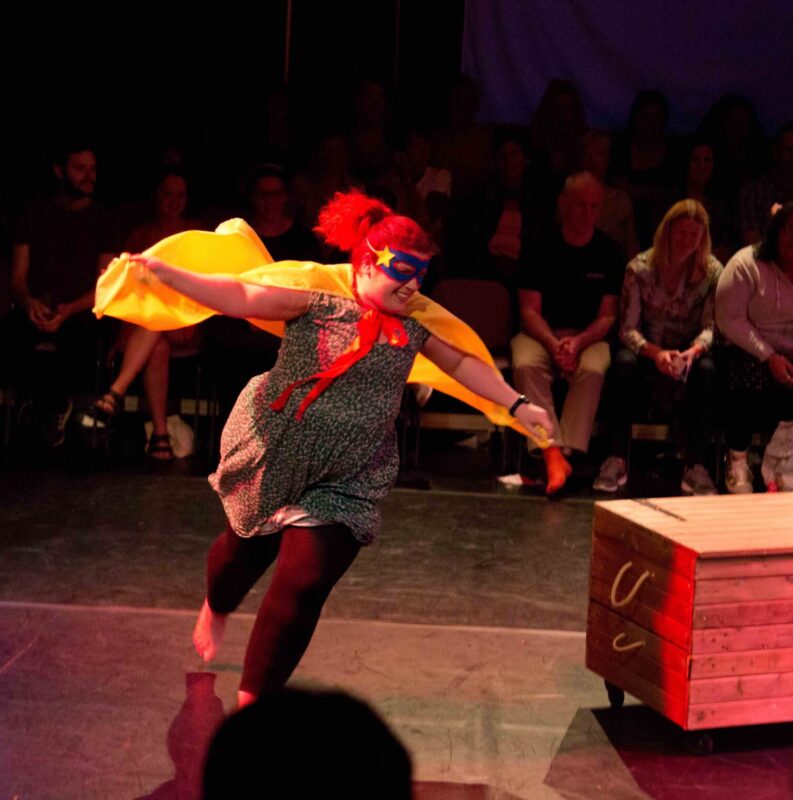



October is ADHD Awareness Month, and Sarah was asked to give some reflections on ADHD, neurodivergence and acceptance at Caritas Salford’s Hate Crime event. We wanted to share her speech:
There’s a saying that “if you’ve met one person with ADHD, then you’ve met one person with ADHD” and that’s because as much as neurodivergency is an umbrella term, so is ADHD because there’s so many variations between person to person. Sometimes it’s easier to use quick visuals to help people understand our individual experience, for me, I’m a coiled spring.
I think it’s fair to say that modern life can be fast, harsh and unforgiving, which is often how my mind is. As a child of the 80s, when my mum asked a doctor for advice he told her to just keep me busy, and I kept following that advice until I hit a wall in my late twenties. Left to fly under the radar without a diagnosis as children, it can take a long time for us to be able to describe what’s going on for us. It’s hard to describe the inner workings of your brain! Society is set up for neurotypical ways of working, like hot desking, shared offices, shops in large settings with loud music, last minute decision changes, inflexible working times, revoking of remote working, short turnarounds for deadlines, and a general capitalist ‘it just needs to get done now’ attitude. And that brings a wave of assumptions about how everyone can do things!
Aged 30, in crisis, I took myself to the doctors and heard ADHD (Attention Deficit Hyperactivity Disorder) for the first time in a professional context. ADHD means I’m often overwhelmed with thoughts and I can’t organise or prioritise them, and when I forget things or make mistakes I come down myself hard, because I’ve had a lifetime of endless negative feedback from people frustrated that I can’t “just do it”. Now, I have a much better understanding of how my brain works, both anecdotally and scientifically and that helps me from big things to small everyday things. Now that I understand what I need, I don’t feel embarrassed asking for it.
Age 34, we made a theatre production called Declaration about my experience in the hope that it would be useful for other people. Meeting other adults with ADHD and talking about my experience has helped me a lot; being with people who experience the world in a similar way is so liberating, exhilarating; it’s a huge relief to know you’re not alone. Declaration is fun and frank. It’s joyful, springy and punchy. It’s packed full of honesty, humour and hope. Whilst it doesn’t shy away from the difficulties (and there’s lots!) it absolutely celebrates the positives too; the curiosity, spontaneity, speedy connections, problem solving, empathy, hyper-focus and never running out of things to say.
For me, knowing I have ADHD means I have a framework to understand myself and make adjustments – there are things I need in place in order to “just do it” rather than trying to force my brain to do things like neuro-typical people. For example, I can’t work in an open plan office – if I’m forced to work in a room with other people then I have to have headphones on playing music at a specific bpm, I need a sign that says if you can talk to me or not, and I need to work in sprints arranging my working hours around when my brain works best. These adjustments are easy ones to make, but in terms of my comfort and productiveness it will be the difference between me literally getting nothing done, and absolutely smashing it. It takes time to figure out what works for us as individuals, but once we know what our brains need, we’re able to thrive.


Imagine you had to wear clothes 2-5 times too small for you. People just kept saying “just do it, just put them on” but they didn’t fit and they caused you pain and everyday you would pretend they didn’t, and tolerate the pain, then when you get home you take them off and cry because you’ve been restricted in pain all day. That’s how masking feels; the pretending is exhausting. Then one day someone says “why don’t you put two panels on either side and let the clothing fit better. And that really helps. It’s not perfect, but you can tolerate it. You cry a couple of times a week instead of every night. Then someone says “why don’t we just make clothes in different sizes so that they fit everyone” and suddenly everything is better and the more comfortable you are, the better you are at your job because you’re feeling comfortable just being you. And if your body changes then that’s fine because clothes can always change size to suit your current need. That’s the dream!
We all need to accept both ourselves and others, and understand that having a blanket policy on something actively excludes people unless they force themselves to mask. We have to think more equitably, asking people what they need to do their best work rather than telling them what we can offer. When we start from a place of honesty and openness we can figure it out together.
If you’d like to see Declaration you can stream – information is here on our resources page
We are Art with Heart, and we want to bring together as many people as possible to unlock their creativity and connection to each other. As a registered charity (1205611), donations make it possible to deliver accessible, representative and inclusive projects, to engage more people, employ more freelancers and plan further into the future. Together, we are building Art with Heart, we would love you to join us! CLICK HERE to donate through our Ko-fi campaign.